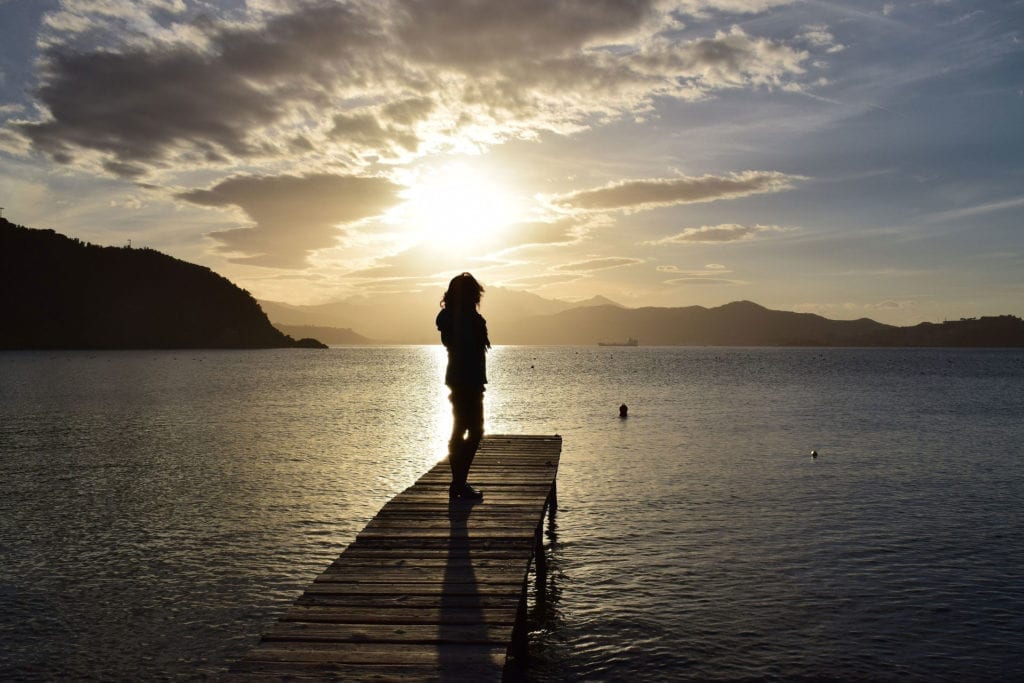“What would I give if I could live out of these waters?
What would I pay to spend a day warm on the sand?
Bet’cha on land they understand
Bet they don’t reprimand their daughters
Bright young women, sick of swimmin’
Ready to stand
And ready to know what the people know
Ask ’em my questions and get some answers
What’s a fire and why does it, what’s the word?
Burn?
When’s it my turn?
Wouldn’t I love, love to explore that shore up above?
Out of the sea
Wish I could be
Part of that world”
– songwriters Alan Menken and Howard Ashman
I’m sure many of you sang along in your head just now the Disney lyrics from the Little Mermaid. This became a theme of sorts in my writer’s brain in high school. I felt, rather than vocalized, cystinosis as my confining ocean.
I loved how the ocean gave me my life, yet I despised how my peers seemed free to just be in the moment. While my reaction to living with rare disease resulted in hyper vigilance and diligence to graduate and pursuance of secondary education “for tomorrow I die”, others my age (including other reactions from other peers with rare disease) could be present and carefree in the teenage world. Or so my idea of all other teenagers was.
“I mean, what is she going to do after college?”
I had overheard this question being asked by a classmate in preparation for high school senior graduation ceremony. In my heart, I knew he was right as I didn’t know what I was capable of doing outside a school setting. In school, absences and breaks from side effects from treatment weren’t looked upon as reasons to terminate my participation in class because my parents were paying for my education and I could work privately with tutors and the teacher to catch up in schoolwork. How would this play out in a career where I was the one being paid? At the time, I wasn’t worried about it, because I was only going to live into my early twenties. I wasn’t particularly bothered by this question and assumption.
In fact, I felt sorry for my peers who in their robust health or reaction to their rare disease, often didn’t think toward goals or the future and from the outside onlooker, seemed to lack purpose.
I had purpose.
I had a rare disease that parents and teachers and preachers said glorified God. I was asked to be an example of God’s love, mercy, and grace. I was working on writing a book, instead of worrying about relationships and children, because my “child” would be my values I passed on to the next generation.
Then I started hearing honesty in my peers I met while attending a school out of state. These people did not grow up with me. I was the new face in this church and college.
“I don’t think I could live with that.”
“How do you deal with that?”
“I feel like I have nothing to complain about and should finish school because if Rebekah can do it, so can I.”
Some of these comments came from others with significant health issues as well: they seemed to feel they couldn’t compare with my grocery list of ailments. The clincher, in my realization of the bubble I happily lived in, happened when I was rushed to the emergency room one night in the dorms and a nurse on call made the following comment after hearing my health history:
“Wow. You sure got the short end of the stick. Didn’t you?” To which I replied reflexively: “I don’t think so. God’s given me a most wonderful life.”
As graduation from college happened, and I was not chosen to give a speech, because in college speeches are awarded to valedictorian and salutatorian and (in Bible college anyway) to a student who spent hours producing visible fruit for the ministry, my prideful bubble in my own innate selfishness and pride began to burst.
The only reason I spoke in my high school graduation was because I had won the Cystinosis Foundation scholarship.
My rare disease awarded me a scholarship. I wasn’t earning things on hard work or perfect attendance. Did attitude count? I was often praised for good attitude, but would that translate into what adults call “the real world”?
Since my rare diagnosis at age 5, I had been compliant on cysteamine therapies and
subsequent medications for kidney transplant. I had done the stapling surgery to correct
childhood rickets and wore my orthotics in my shoes religiously. I finished chemotherapy and communicated with my physicians.
Yet, I still struggled physically with the onset of migraines, irritable bowel syndrome, gastroparesis, gall bladder removal surgery, and increasing daily pain. I struggled mentally and emotionally with depression and anxiety. Where was my faith? Where was my God?
Well, treatments for rare disease work. The children grow into adults. My heart was now asking at age twenty-two,
“I didn’t die. Now what?”
…to be continued
Check out part 1 of My Cystinosis Series here and part 2 here. And if you’re interested, check out Psalm 71 King James Version (KJV).
Have your own take on growing up rare? Let us know here!
To learn more about cystinosis, check out our partner the Cystinosis Research Network here.






